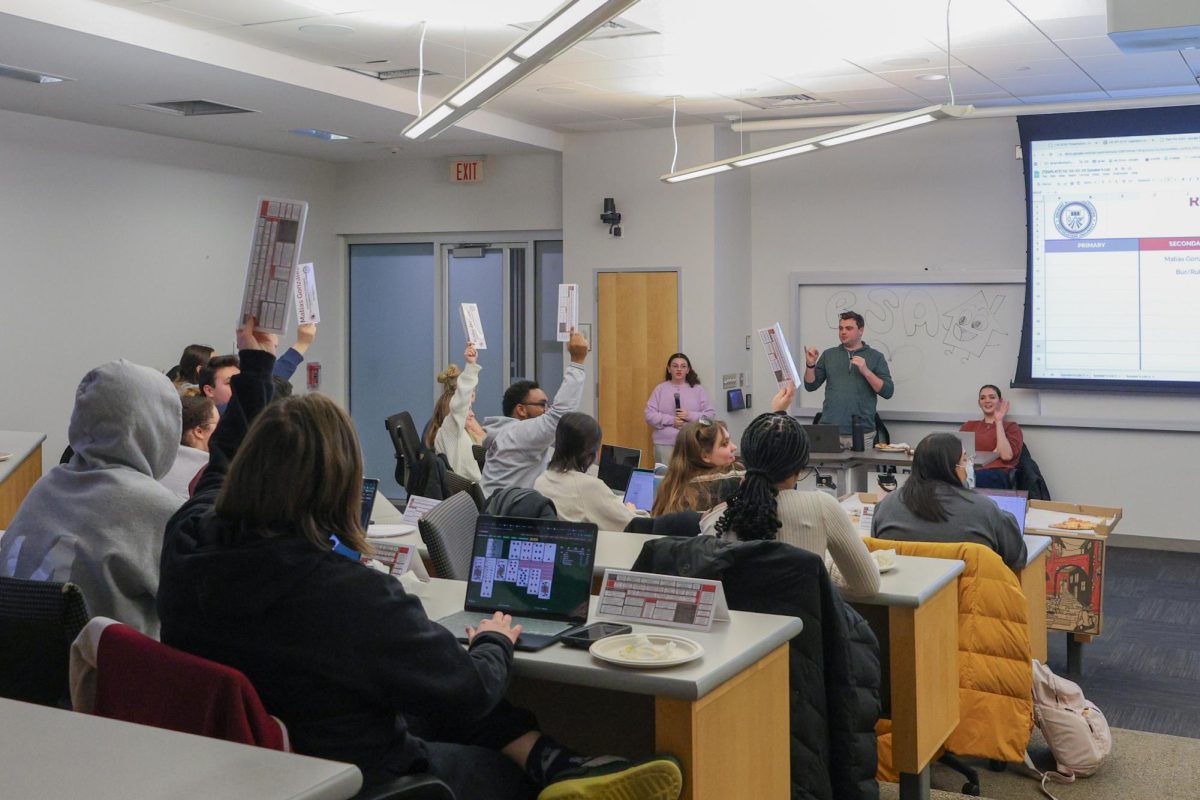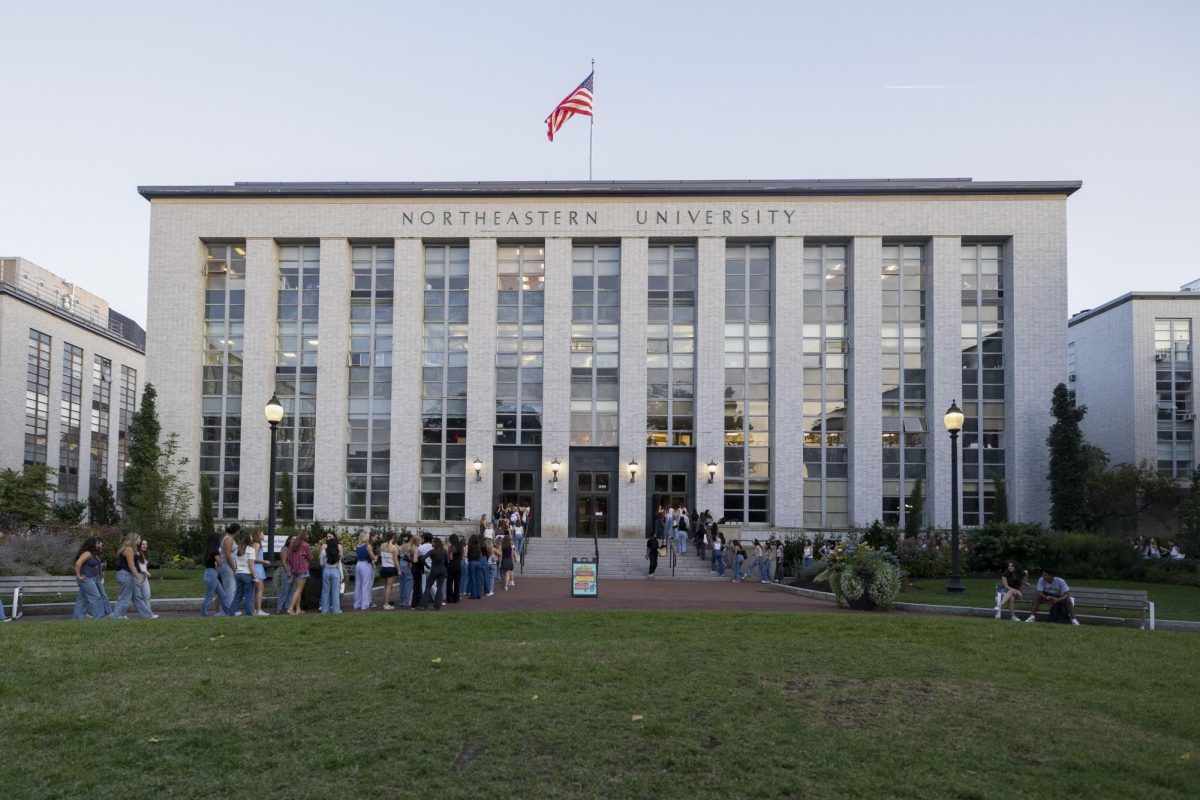By Catia Sharp
The Irvine M. Levine Market Place and the Stetson West dining halls twice failed non-critical health inspections by the City of Boston this summer, according to inspection data from this year.
On June 30, Stetson West failed on eight counts and the Marketplace, also called Stetson East, failed on four. Violations included improper temperature of salad bar ingredients, replacement of hood ventilation screens above the ovens, proper storage of clean cutting boards and proper coverage and cleaning of the dumpster and compactor. Both dining halls failed again July 8, with Stetson West failing on two of the previous eight counts (non-contact surfaces and floors designed, constructed installed), and East on failing one (inadequate facilities/cooling methods). At a third inspection on July 14, Stetson West passed with minor violations and Stetson East passed with no violations.
The Mayor’s Food Court website, cityofboston.gov, deems these kinds of violations as ones that do not seriously affect the public health. Critical violations would include failure to label ingredients and allergies.
Officials from Chartwells, the company Northeastern employs to run the dining halls, declined to comment.
Food service establishments fail due to accumulation of violations, according to the city website. Violations are ranked in one of three categories: non-critical, critical and critical foodborne illness. All food establishments in the city are inspected twice annually, according to the website
Maureen Timmons, director of Dining Services at Northeastern, said inspection results are “a little misleading when you first look at them.”
“We usually do well with the Board of Health,” she said.
The Stetsons failed inspections this February and in November 2007 but passed a few weeks later, respectively.
Timmons said members of the university are “always working on” improving sanitation and the dining halls usually undergo three inspections by the City of Boston annually.
Matthews Arena also failed health inspections this year (failure to keep food contact surfaces clean and improper maintenance of floors). Ryder Hall, Ell Hall, the Faculty Club and 716 Columbus all passed their most recent inspections, in July, March and January, respectively.
Timmons said the dining halls service 7,000 people a day.
Some students said they noticed apparent unsanitary conditions in the dining halls.
“I found hairs in my food. Once, I got uncooked chicken, so I didn’t eat it,” said sophomore health sciences major John Ghublikian.
Fernanda Pereira, an undeclared freshman, said she hasn’t “found anything disgusting yet.”
“They clean up pretty nice,” she said.
Daniel Wendt, a freshman business major, said students have as much of a responsibility to keep their eating environment clean as staffers do.
With about half the student population coming through its doors each day, he said the dining halls will inevitably become messy.
“The tables are dirty and people don’t clean,” Wendt said, “but it’s what I expected.”









